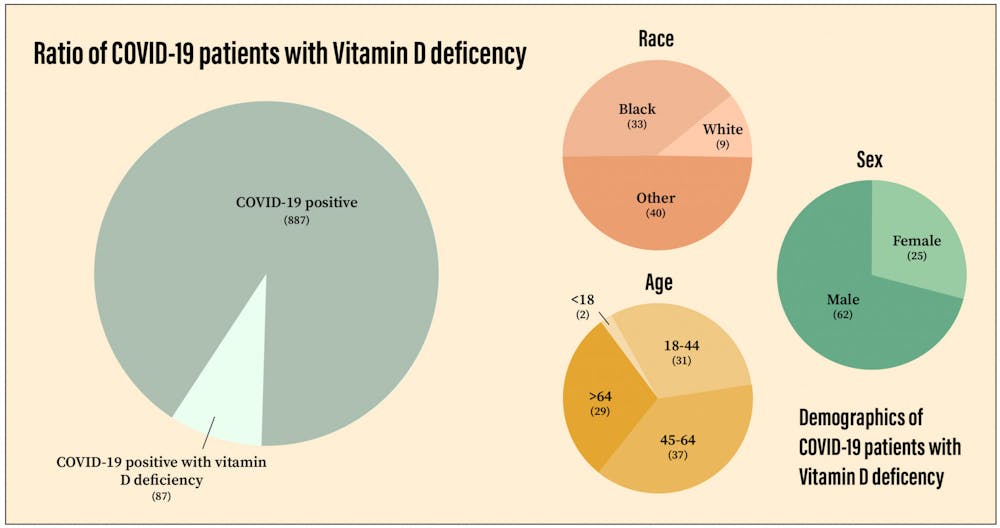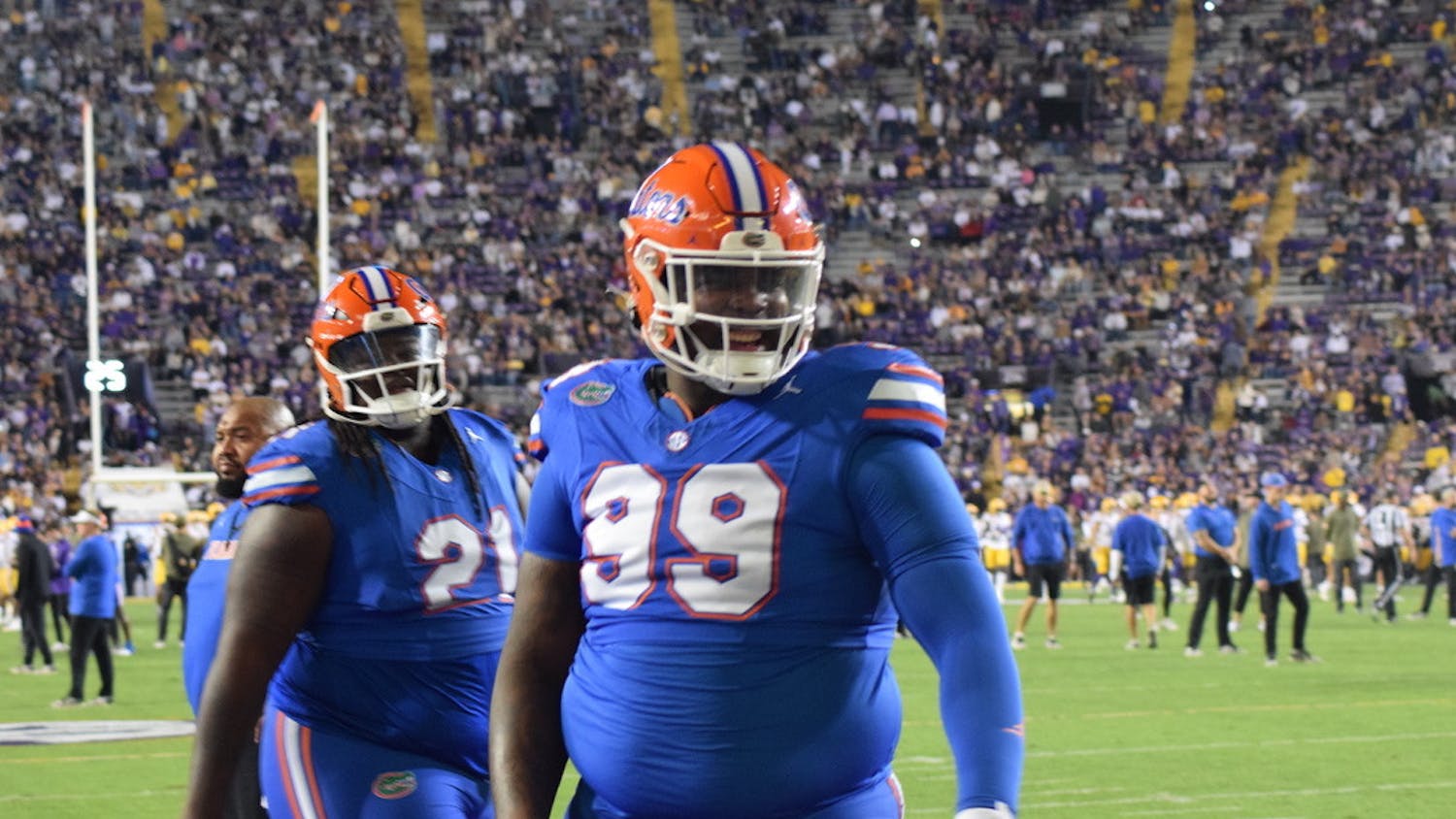A recent study revealed another possible risk factor for COVID-19: vitamin D deficiency.
A UF research team found vitamin D-deficient patients were four times more likely to be COVID-19 positive than those with a sufficient amount of the crucial vitamin, which people can get from sources like sunlight and animal proteins. The findings were published Dec. 4.
Joseph Katz, a professor of oral medicine in the UF College of Dentistry, began conducting the research because he wondered whether vitamin D deficiency influenced the onset of COVID-19. The study took about three months, and Katz worked with UF biostatisticians like Sijia Yue to analyze the data and adjust for different variables, he said.
“The rationale behind the results we got is, if you have vitamin D deficiency, then you should be really, really careful, because you have a very high risk of getting COVID-19,” Yue, a data analyst in the UF Department of Biostatistics, said.
Yue helped with the study by making the patient data usable for researchers to run the models. They used the models to adjust for patients’ age, gender and race. Even after taking such factors into consideration, Yue said the results still showed a strong association between vitamin D deficiency and COVID-19.
Katz said the strong correlation between vitamin D and COVID-19 is cause for concern because a large portion – or 5% – of the population is vitamin D deficient, and 17% of African Americans are deficient.
The next step is to give patients vitamin D supplements. Then, Katz wants to study the effect of vitamin D on other aspects of health. Because some of these effects are long term, researchers would follow up on patients for about five years and see how many of them will be affected by different conditions, Katz said.
“I think this is the direction I see in the future,” he said. “This whole area of vitamin D is very exciting for me in my field or in other fields as well.”
Elias Sarkis, a Gainesville psychiatrist at Sarkis Clinical Trials, said vitamin D deficiency may be correlated not only with being COVID-19 positive, but also COVID-19 deaths and other issues.
“People with low vitamin D have a higher admission rate to the ICU,” Sarkis said. “They have a higher death rate in the ICU. And people with low Vitamin D have higher rates of autism, ADHD, depression, cardiac problems. But we don’t know why.”
But Sarkis said he doesn’t know if vitamin D prevents issues like fatigue.
“We just know that low vitamin D goes along with fatigue and malaise,” Sarkis said. “So, it obviously plays a role in immunity. And that is the reason why it’s so involved in everything that we’ve been talking about.”
While Sarkis agrees supplements can help people increase their vitamin D levels, he advised to use caution when buying them. Sarkis said he supports FDA certified products.
“You have to be careful about where you get your supplements from because supplements are not regulated,” he said.
Sarkis said no matter what measures people take, everyone should be doing what they can to prevent themselves and others from getting COVID-19.
“It’s really bad right now,” he said. “And I think we just got to do what we can, because it’s going to be a while before everybody gets vaccinated.”
Contact J.P. Oprison at joprison@alligator.org. Follow him on Twitter @joprison.

JP is a fourth-year journalism major with a minor in history. He is currently the health reporter for The Alligator, focusing on how the pandemic is affecting Alachua County and the thousands of students in Gainesville. In his free time, JP likes to exercise at the gym and relax on the beach.






